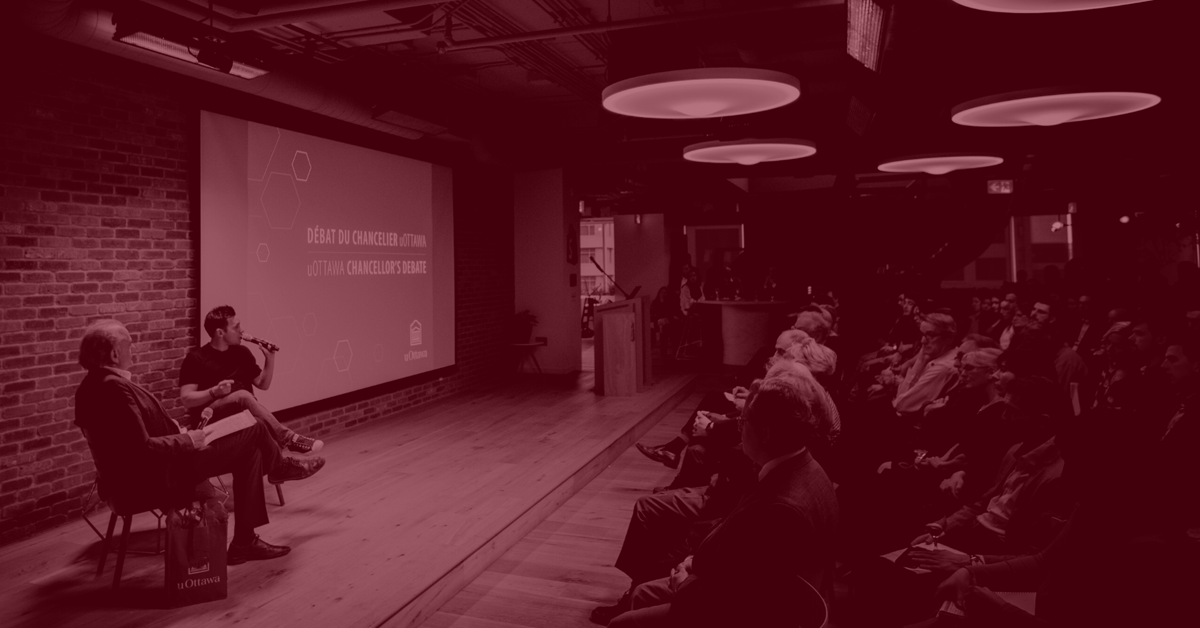The Fourth Industrial Revolution is upon us, and according to Klaus Schwab, the Founder and Executive Chairman of the World Economic Forum who coined the term, this technological revolution “is blurring the lines between the physical, digital and biological spheres.”
What makes this revolution different from the last is that technology is merging more and more with humans’ lives and changing more rapidly than ever. Emerging breakthroughs in fields such as artificial intelligence, the Internet of Things, 3-D printing and quantum computing are disrupting the way industries do business.
As technologies are becoming ingrained in our daily lives, and even our bodies, businesses need to adapt quickly, or risk being left behind. In many cases, it means a complete production, management and governance overhaul to keep up with evolving consumer behaviours and demands.
In light of the upcoming Chancellor’s debate on Thursday, November 28, we asked our participants what they think are the top three most important things to stay competitive in this Fourth Industrial Revolution. Here’s what they had to say.
John Proctor, President and CEO of Martello Technologies
- Agility. ‘No plan survives contact with the enemy.’ In this case, the enemy is a constantly evolving business and market ecosystem. Be ready to adjust and pivot as required to a very dynamic, if not increasingly more fluid, ecosystem. You cannot assume that your market and associated ask of clients and customers will stay the same. The pain points that you solve today, through service or product, will be shifted by technological development.
- Develop visionary leadership. Without vision, you don’t know where you are leading. Without leadership, you can’t take people toward the vision. Appropriate leadership skills must be developed at all levels within the company. Companies should be ready to react in a decentralised manner, which demands consistent distributed leadership.
- Identify the roles only humans can do. Understand the part that technology can and will play, and where it might replace current human trades, services or skills. Look at the talent and technology your company has, what it is and should be developing, and identify associated opportunities and threats. For example, if you are delivering a service that technology might replace, look at the skills required to deliver, the team and what they have to offer, and find areas where those skills can be applied, where technology cannot.
Mychelle Mollot, Chief Marketing Officer, Solace
- The speed of innovation and the disruption brought on by the Fourth Industrial Revolution will be exponential, not linear. You, your organization and your business model will need to continuously evolve at high speeds in order to compete.
- Biological, physical and digital systems are converging in this Fourth Industrial Revolution, so new product "imagineering" needs to happen from a multidisciplinary perspective.
- The Fourth Industrial Revolution is expected to increase the economic divide. This will likely lead to a rise in social consciousness, where consumers and future employees will not only care about what you do, but also how you do it and how it will impact climate and the environment. For example, what impact will your product, its parts and your manufacturing and development process have on climate? How diverse and equitable is your employment philosophy? To stay competitive, you will be expected to have a great product AND a great sense of corporate and social responsibility.
